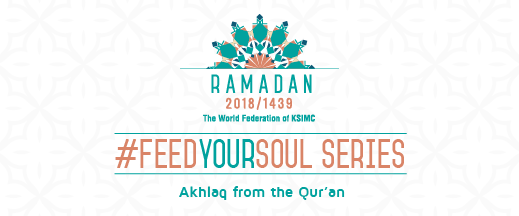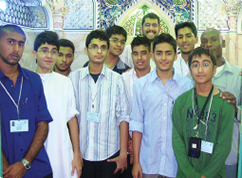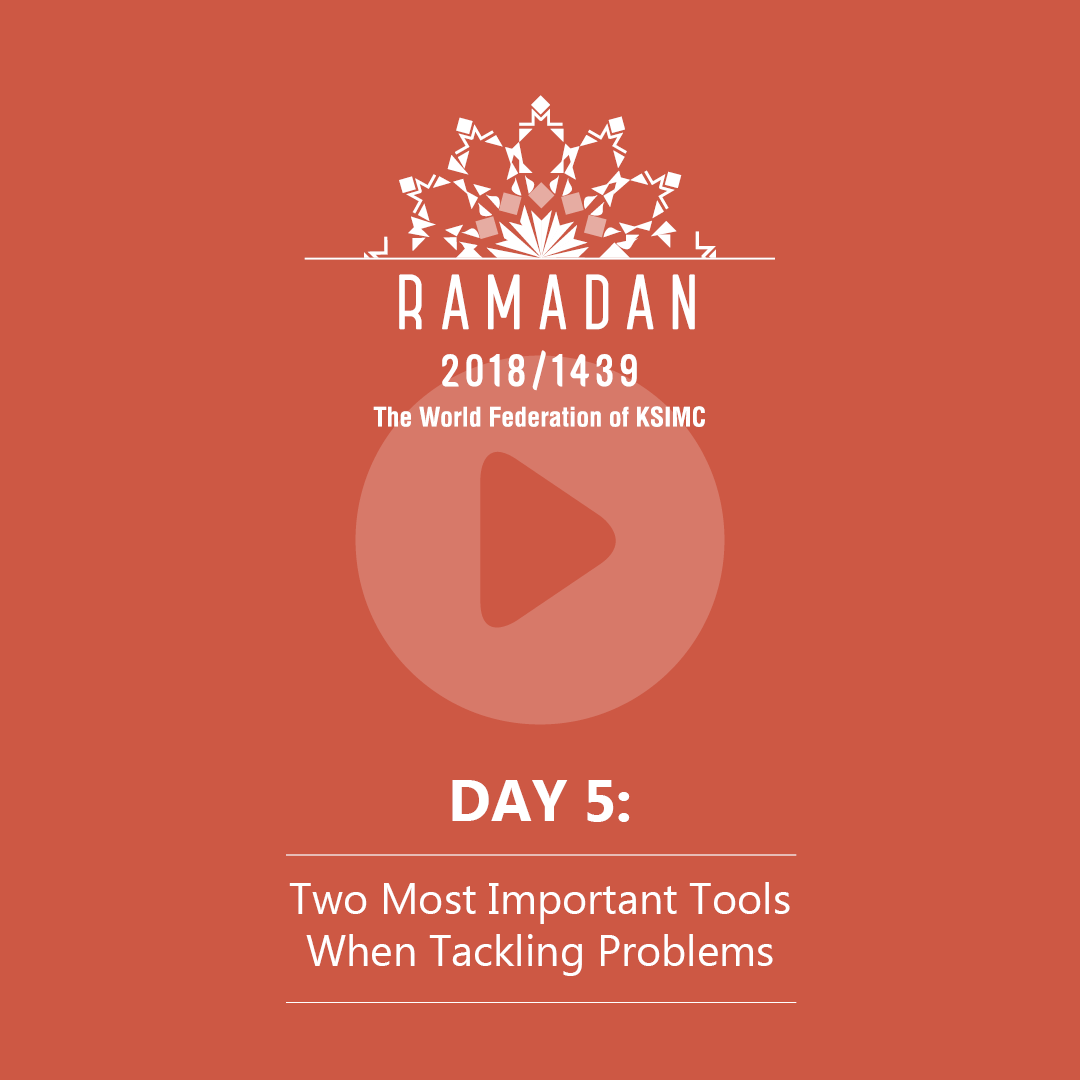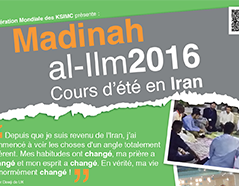The story of Prophet Yusuf (a.s.) is famous and timeless. This story has been highlighted by the Almighty Himself in the Qur’an as one of the best examples of principle, modesty and true love – that for Allah (SWT).

The first 5 videos are an introduction to the Holy Month of Ramadan.
Take part in the daily reflection\challenge to help you get closer to Allah (swt).
< Click here to watch previous videos
Day Five
Two Most Important Tools When Tackling Problems
وَ اسْتَعِينُوا بِالصَّبْرِ وَ الصَّلاةِ وَ إِنَّها لَكَبِيرَةٌ إِلاَّ عَلَى الْخاشِعِين
"And take recourse in patience and prayer, and it is indeed hard except for the humble"
This verse follows verses addressing the Jews, taking into consideration the criticism that was directed at the scholars of the Jews and the commands that were addressed to them, particularly that of bringing faith in the Prophet (s.a.w.), the scholars could have been afraid that their present circumstances would change and by accepting Islam, the help that was given to them would be taken away and they would face social and economic hardships and lose their rank and station. Therefore, God showed them the path of perseverance and endurance and taught them to take help from two things in this path: the first was to not lose their spirit and morale and exercise patience, and the second was to place themselves under the eternal beneficence and kindness of Allāh by forming a connection to him and offering prayers; and to be certain that with these two actions a person will never be helpless and beaten and will instead attain a peaceful spirit and a heart that is certain.
Although this verse follows the verses addressing the Jews, it is addressing all people. Whenever a person adheres to these two, no problem can beat him and no danger can threaten him.
The word isti'ānat (from which the verb, ista'īnū in the verse is derived) means to seek help when a person is unable to resolve a matter that has come up for him, in the best manner, alone and through his own power and faculties.
The reason the verse mentions to seek help from patience and prayer is because, in reality, there is no helper apart from Allāh (swt); in times of difficulty and distress one must turn to Him and seek His help and this is what patience and prayer refers to. These two are the best means of victory as patience reduces and makes every problem and calamity insignificant and prayer revives the spirit of faith and makes a person realize that: he has learned and taken help and support from someone who unable to be destroyed and has reached out to a cause that can never be torn apart.
In the next part of the verse: wa innahā lakabīratun… the pronoun hā refers to the word ṣalāt (prayer) and it seems improbable that it would refer to the sentence ista'īnū (seek help) as it does not conform with the sentence illā 'alal khashi'īn (except for the humble) since humility does not hold meaning with patience. The word khushū' refers to the humility of the heart, in contrast to khuḍū' which refers to the humility of the man's physical body and its parts.
The word khāshi' refers to someone who assumes the state of abjection and humility in prayer and in this verse refers to the Holy Prophet (s.a.w.) and Amīrul Mo-minīn (a.s.).
It is narrated that whenever an important matter would come up for Imām 'Ali (a.s.) he would stand in prayer and would recite: and take recourse in patience and prayer.
It is also narrated from Imām al-Ṣādiq (a.s.) that patience in this verse refers to fasting and that whenever an incident comes up for someone, he should fast so that God makes it go away as He has said: and take recourse in patience and prayer; In another tradition from the Holy Prophet (s.a.w.) it is narrated that patience is of three types: 1. Patience in the face of calamities; 2. Patience when faced with sins and 3. Patience in worship; thus, in the previous narration when it mentions that patience refers to fasting it is referring to one of the instances of patience.
Prayer with attention reminds man of God's endless power and makes all other than Him insignificant, increases His love in our hearts, strengthens the spirit of trust in Allah and frees man from material attachments; all these effects makes a person resistant in the face of problems.
Patience and prayer are the keys to all worship. The angels greet the inhabitants of Heaven, not because of their worship, prayers, Ḥajj and Zakāt, but rather because of their endurance and patience: Peace be to you, for your patience [13:24]; if there is no perseverance and patience, none of the other acts of worship would be present; patience is even the condition to reach the status of Divine guidance and leadership: And amongst them We appointed imams to guide (the people) by Our command, when they had been patient and had conviction in Our signs [32:24].
One excellent example of exercising patience can be seen in the story of Prophet Yūsuf (a.s.) who went through many ordeals in his life but because of his patience and trust in Allāh he was successful in getting through all his problems and was rewarded in this world with a kingdom and rewarded in the next world as well.
Related News
For nearly 3 years now, The World Federation has been actively supporting Tableegh activities in Kosovo.
Summary of question
How can one become sure which of the ulema giving advice and lectures are worthy and qualified to so?
Question
We live in a community of hundreds of thousands of Muslims and have many ulema--many of whom we do not believe are qualified. How can a person obtain assurance (or certification) that the ulema that are giving advice and lectures are supported and qualified according to the rules of the Shia faith?












